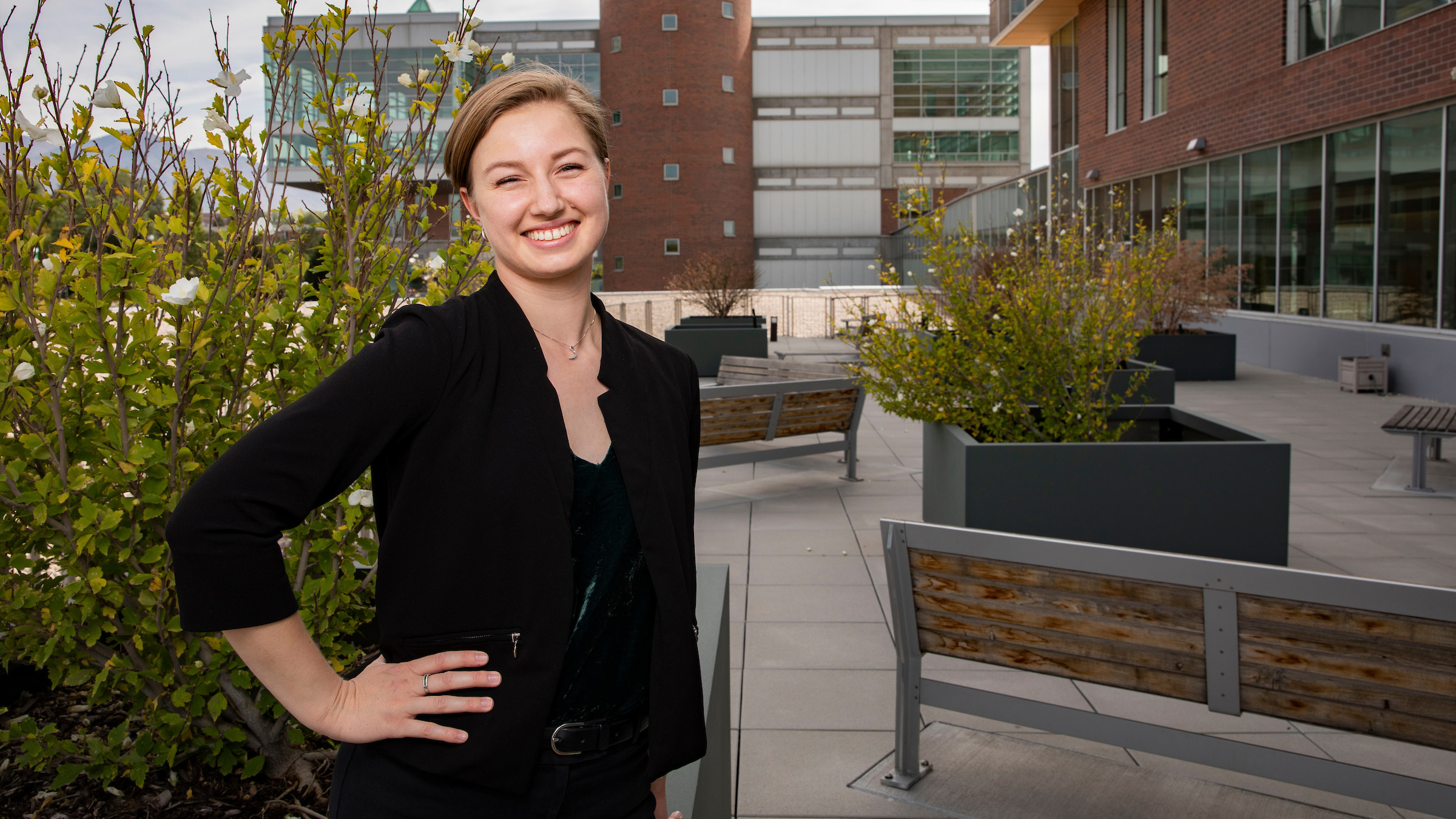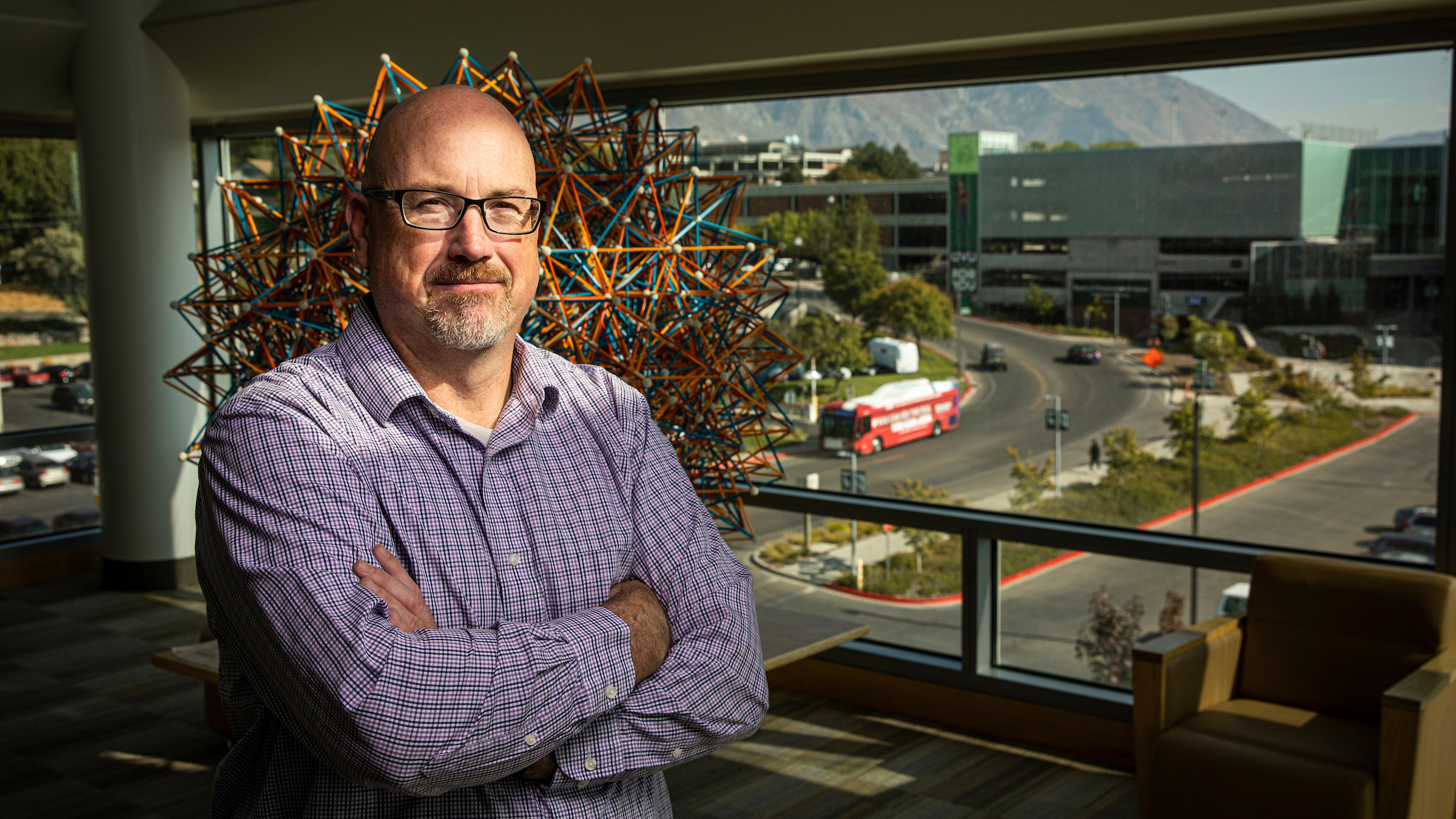UVU family studies experts, along with some national thinkers, say that the impact of the pandemic on families has likely been a mix of both the negative and the positive.

Many businesses, with supporting advertising campaigns, have done their best of late to tell American families that “they are there for you,” and “we can get through this together.” They have visually and verbally shown how families can happily dance, wrestle, and smile their way through the current pandemic.
But UVU family studies experts, along with some national thinkers, are more likely to say that the impact of the pandemic on families has been a mix of both the negative and the positive.
“Although I imagine that some families have found the time to incorporate more home-cooked, shared family meals, plenty of families are probably struggling to balance all their responsibilities in a 24-hour day,” Rachel Arocho, UVU family science professor, said. “For those who are able to be purposeful about incorporating family time into their days, however, they likely reap benefits from those activities. For families that had working parents who have had to shift to working at home, particularly if the children haven’t gone back to school, time is probably a premium resource.”
Arocho, and fellow UVU professor Nate Cottle, said the early examination of the pandemic is that it has been a mix of positives and negatives across society generally and within families specifically. Arocho noted that many things about the pandemic are “universally stressing and probably negative,” such as loss of social contact, economic uncertainty, unemployment, reduction in resources such as childcare, and educational upheaval.
“However, some families may have leveraged the time together at home to build their strengths through spending enjoyable time together, focusing on gratitude and patience, or serving each other and other families, all of which could have positive effects on their well-being and family life,” Arocho said.
Cottle suggested that some families facing home education for their children often “did not have the bandwidth, and I mean that both literally and figuratively.”
“Multiple family members may have to be in virtual meetings while their children may be in virtual classrooms,” he said. “Many families do not have enough devices for everyone to work at the same time. However, parents are also stretched thin between their own work responsibilities and facilitating their child’s education. Often they may not have the ‘bandwidth’ to do it all and something has to give and not everything can be a priority.”
Both agree the pandemic and forced changes to schedules and contact have had especially challenging effects on single-parent families, including the loss of reliance on extended family, such as grandparents, for childcare support.
“Most families, those with multiple adults but especially those with single parents, often draw support from other family members, friends, neighbors, and other important people in their lives,” Arocho said. “These parents likely struggle to both do their own work and oversee their children's schoolwork. With restrictions on being able to visit family members, single parents may be having to find new childcare arrangements while still attending to their own health and employment needs.”
Cottle said the pandemic often altered negatively the economic position of single-parent families, with unemployment and loss of health care benefits.
“Additionally, emergency benefits, such as enhanced unemployment ($600) or government checks ($1,200) benefitted two-parent households more as it doubled the amounts two-parent families received compared to single parents,” he said.
National observers have found evidence on both ends of the happiness spectrum when projecting information on families during the pandemic. According to the sixth annual American Family survey, a nationwide study of 3,000 Americans conducted in June, 32% of Americans reported less than average tension among members of their household, compared to 16% who reported more tension as a result of mandated isolation. The numbers change if there is a job loss or financial distress, though, the study noted, but the general findings do not suggest the pandemic is hurting all families.

UVU professor Nate Cottle
A report in the Deseret News stated 56% of survey respondents said the pandemic made them appreciate their partner more, while only 10% disagreed, according to the survey.
Meanwhile, some analysts suggest those who are already experience some levels of domestic violence or abuse may have seen those problems increase.
The New York Times recently reported that in Chicago the number of people seeking help has increased as the pandemic deepened. During the first week of March, 383 people called a domestic violence hotline in the city. By the end of April, the weekly number was 549. Text messages to the hotline have also increased, suggesting, The Times stated, that victims have little physical distance from their abusers and find texting is safer than calling.
The Chicago Police Department said domestic violence-related calls increased 12% during a period from the start of the year through mid-April, compared with the same time period in 2019. In other cities, including Los Angeles and New York, police have seen a drop in calls, the Times stated, but authorities have said they believed that victims were in such close quarters with their abusers that they were unable to call the police.
The American Family survey, however, suggests that the overall result is on the other side of the scale:
Arocho noted that this strengthening of couples during the compacting of families may not necessarily lead to an upward bump in birth rates in the near future. In fact, she says it is not likely, based on historical pattern.
“I believe it’s unlikely that we’ll see a huge baby boom. However, that’s more to do with the economic impact of this pandemic than the virus, most likely,” she said. “In times of economic uncertainty or trouble, like the Great Recession, we tend to see fewer people purposefully having babies. Children are expensive, so when our livelihoods are uncertain, folks tend to hold off on getting pregnant.”
She said demographers will want to study this aspect of pandemic fallout in the future, “including the number of unplanned pregnancies that come about during this period.”